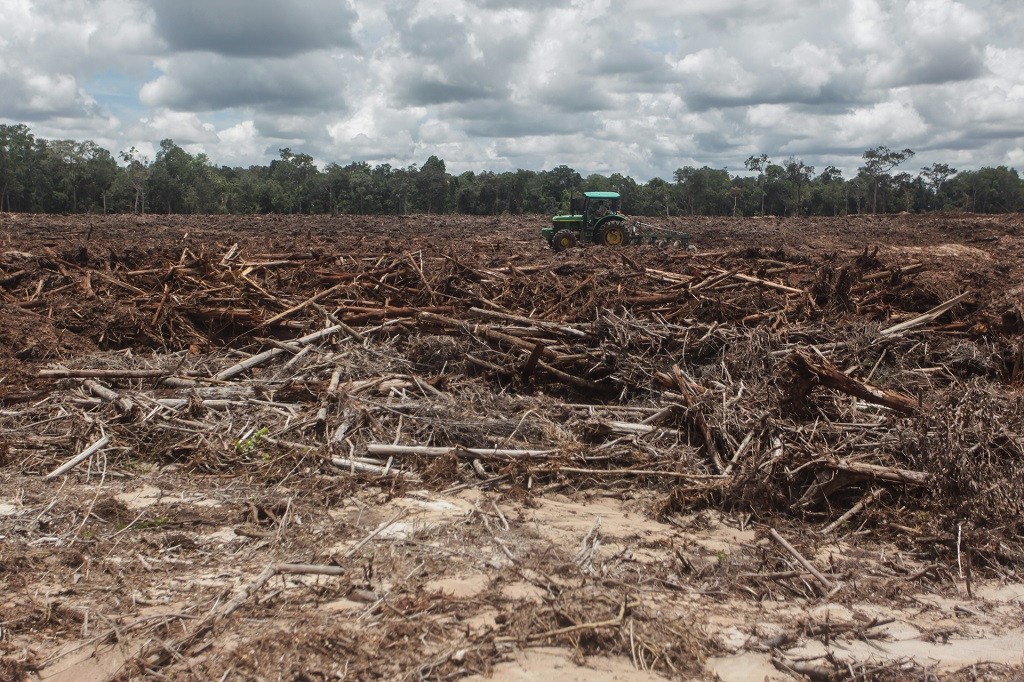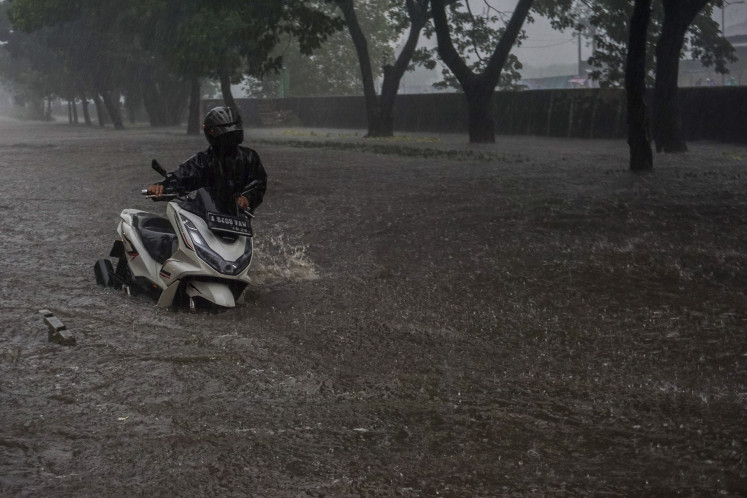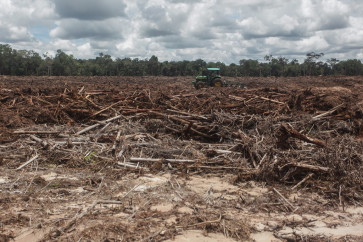Popular Reads
Top Results
Can't find what you're looking for?
View all search resultsPopular Reads
Top Results
Can't find what you're looking for?
View all search resultsThree years on, the food estate fails to deliver: study
Three years since the food estate was launched by the government, the program has yet to produce satisfactory results despite sacrificing peatlands and forests in Central Kalimantan, Pantau Gambut's latest study says.
Change text size
Gift Premium Articles
to Anyone
T
hree years since the food estate was launched by the government, the program has yet to produce satisfactory results despite sacrificing peatlands and forests in Central Kalimantan, Pantau Gambut’s latest study says.
“The government is seemingly overwhelmed with the food estate program that has yet to bear fruit, but they also have not conducted a thorough evaluation or corrective measures on the program,” environmental coalition Pantau Gambut campaigner Wahyu Perdana said in a statement on Wednesday.
He said Pantau Gambut found that up to 3,964 hectares of land designated for the food estate in Pulang Pisau regency, Kapuas regency and Gunung Mas regency in Central Kalimantan had lost their tree cover between January 2020 to March 2022.
Additional research by Pantau Gambut also found that between January 2022 to October 2022, as many as 1,546 ha of land lost their tree cover in the same three agencies that were also designated for the food estate.
Meanwhile, lands that were already converted into farms for the food estate had face crop failures, Wahyu said, with rice fields on the food estate in Central Kalimantan producing only around 3.5 tonnes of unhulled rice per hectare in 2021 despite a productive rice field being able to produce at least 4 tonnes per ha according to experts.
He added that Pantau Gambut found in Tewai Baru village, Gunung Mas regency, cassavas harvested from the food estate were small, yellow in color and bitter, which could be alarming as research found that bitter tasting cassava could be caused by high cyanide content.
Another 2023 Pantau Gambut study found that up to 3.8 million ha of peatland areas were at high risk from being burned.


















